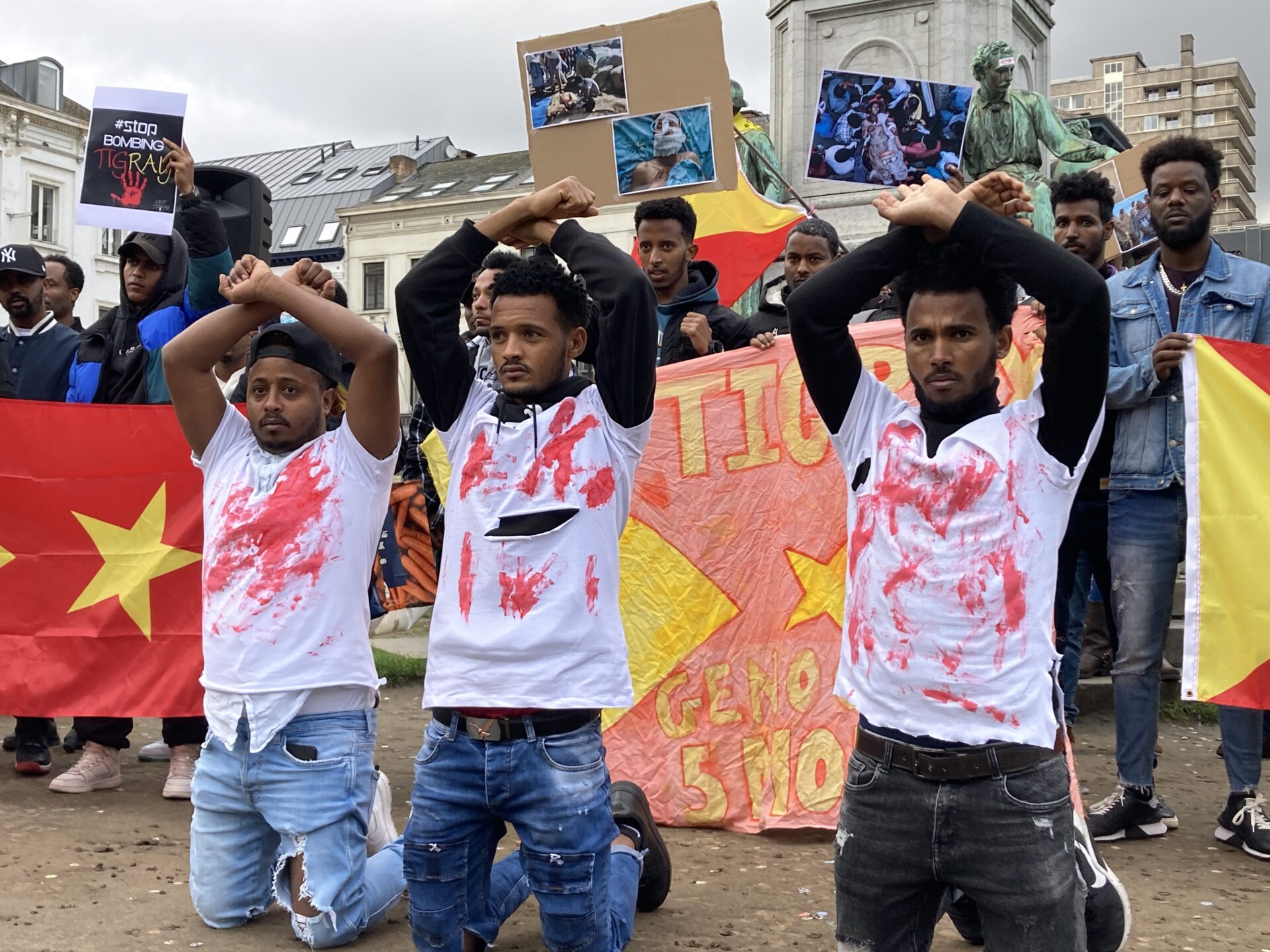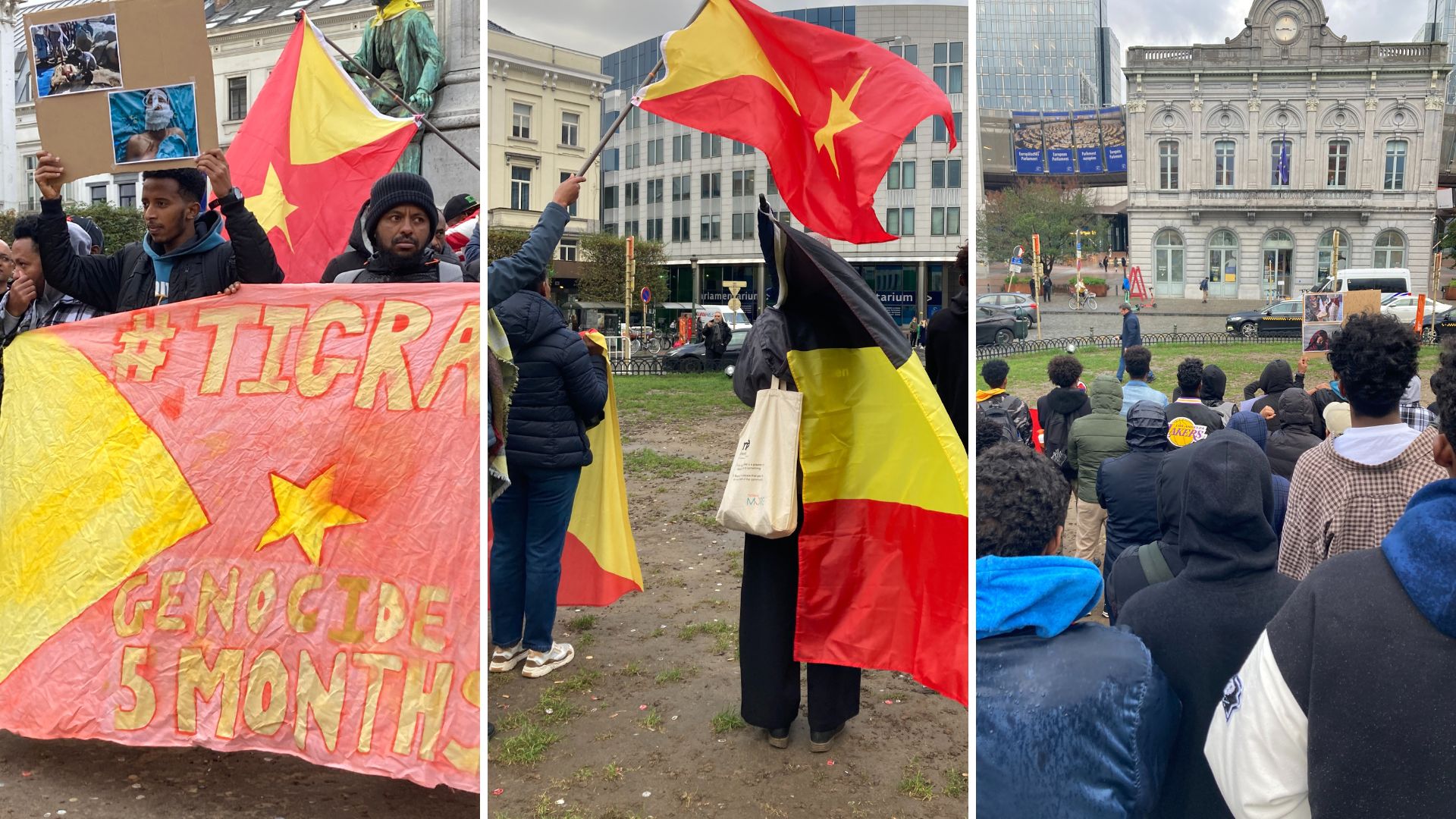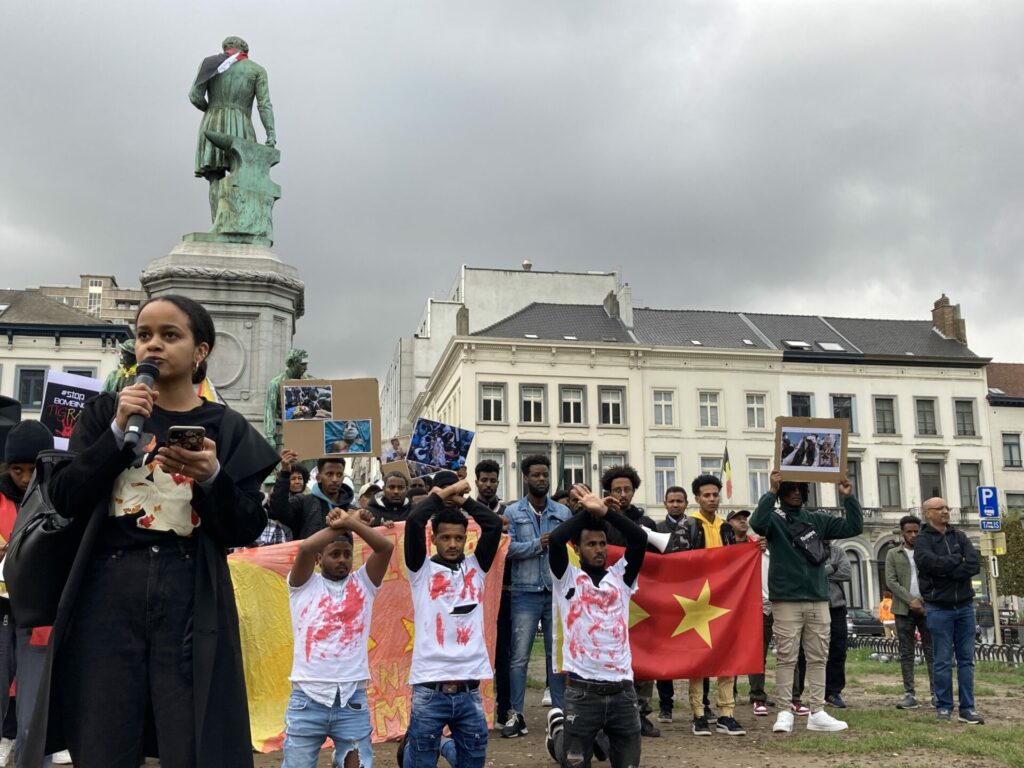Today marks two years since war broke out in the Tigray region of Ethiopia. Since then, reportedly up to 600,000 people have died by war-related violence and famine, millions have been displaced and hundreds of thousands are on the brink of famine. It is the most deadly war currently taking place.
EU foreign policy chief Josep Borrell said after a Foreign Affairs Council in October that “the situation on the ground has never been that bad, both on military and humanitarian fronts.”
Yet there is some hope that the end is in sight. In peace talks in South Africa, mediated by the African Union, delegates from both sides signed an agreement on Wednesday on a “permanent cessation of hostilities” as a first step towards a peace solution.
To bring attention to the two-year anniversary, dozens of protests were held on 4 November globally. The Tigrayan diaspora is once again standing with their brothers and sisters in Tigray and calling for international attention to the war in the hope of finally seeing the laying down of arms in favour of peace for all sides.
Goitom Tegegn, a council member of the Union of Tigrayans in Belgium explained the similarities between what is happening in his country and in Ukraine. "It is the same playbook as Russia is using in Ukraine: bombarding cities, killing civilians and then denying and disinforming people."
Russia's unprovoked and illegal invasion of an independent country has been strongly condemned by most countries in the world. In the case of the war in the Tigray region, which is part of Ethiopia, it is a civil war between previous partners in the government.
"The effort of our community becomes a double burden. We have to tell the world what is happening and we have to fight the disinformation at the same time."
Narrow window to prevent genocide
"There’s no other situation globally in which six million people have been kept under siege for almost two years," said Director General of the World Health Organization Tedros Adhanom Ghebreyesus. "There is a very narrow window now to prevent genocide."
The Ethiopian government has been repeatedly accused of preventing aid from getting to the Tigray people, although it has denied all claims of doing so. Power, communications and water, among other basic necessities, have been cut off in the Tigray Region. Journalists have been prevented from covering the war and international aid institutions have been blocked from entering the region at all.

Protest against the Ethiopian war in the northern region of Tigray held on the two-year mark of the war, 4 November 2022, at Luxembourg Square. Credit: Danica Van der Merwe / The Brussels Times.
For months after the start of the conflict, the Ethiopian president denied that civilians were being harmed or that soldiers from Eritrea had joined the fight. However, international observers and human rights groups released reports proving both claims to be false.
There have been reports of gross violations of human rights including rapes, the mutliation of women and girls to ensure infertility, mass killings and torture.
Actions speak louder than words
After 10 days of intense peace discussions hosted in the South African capital city of Pretoria and meditated by the African Union, an agreement between the Ethiopian Government and the Tigray Peoples’ Liberation Front was signed. The agreement stipulated a "permanent cessation of hostilities" and promised to implement it properly.
The agreement was met with cautious optimism, especially considering the absence of the Ethiopian government's ally and active party in the war, Eritrea.

Credit: Danica Van der Merwe / The Brussels Times.
However, even with cautious optimism, disappointment and frustration are all that remain. On the very day of the signing and in the days since bombs have been dropped and skirmishes reported from within the region. Both sides have accused the other of immediately disregarding the agreement.
Another protest will be held later this month where members of the Tigrayan diaspora around Europe will physically come together to once again call for international media attention. They are now well aware of the short attention span that the media has for the atrocities faced by their people.
The protest will give an opportunity for the international community to hold the warring parties accountable for the peace agreement they signed.

